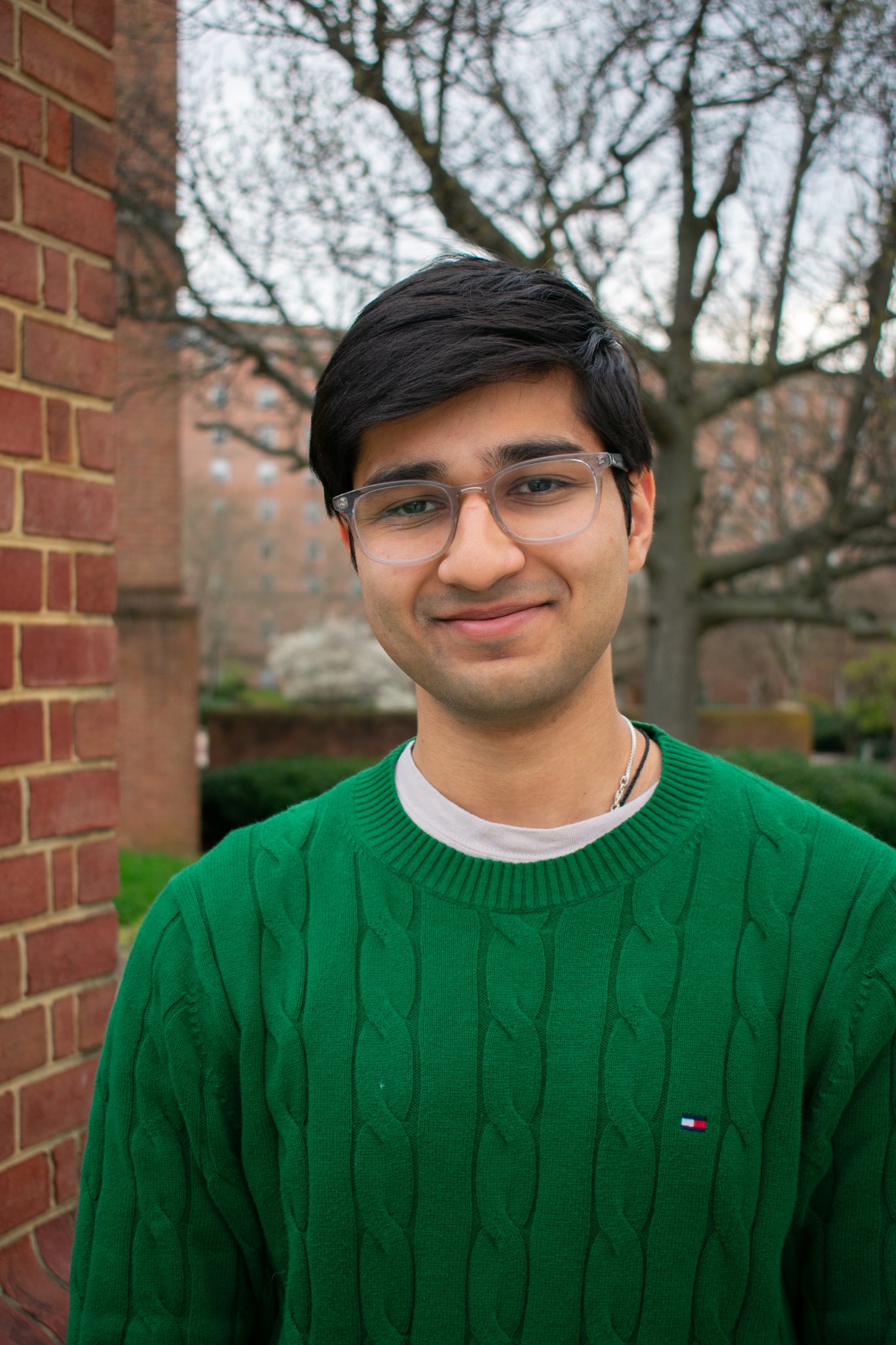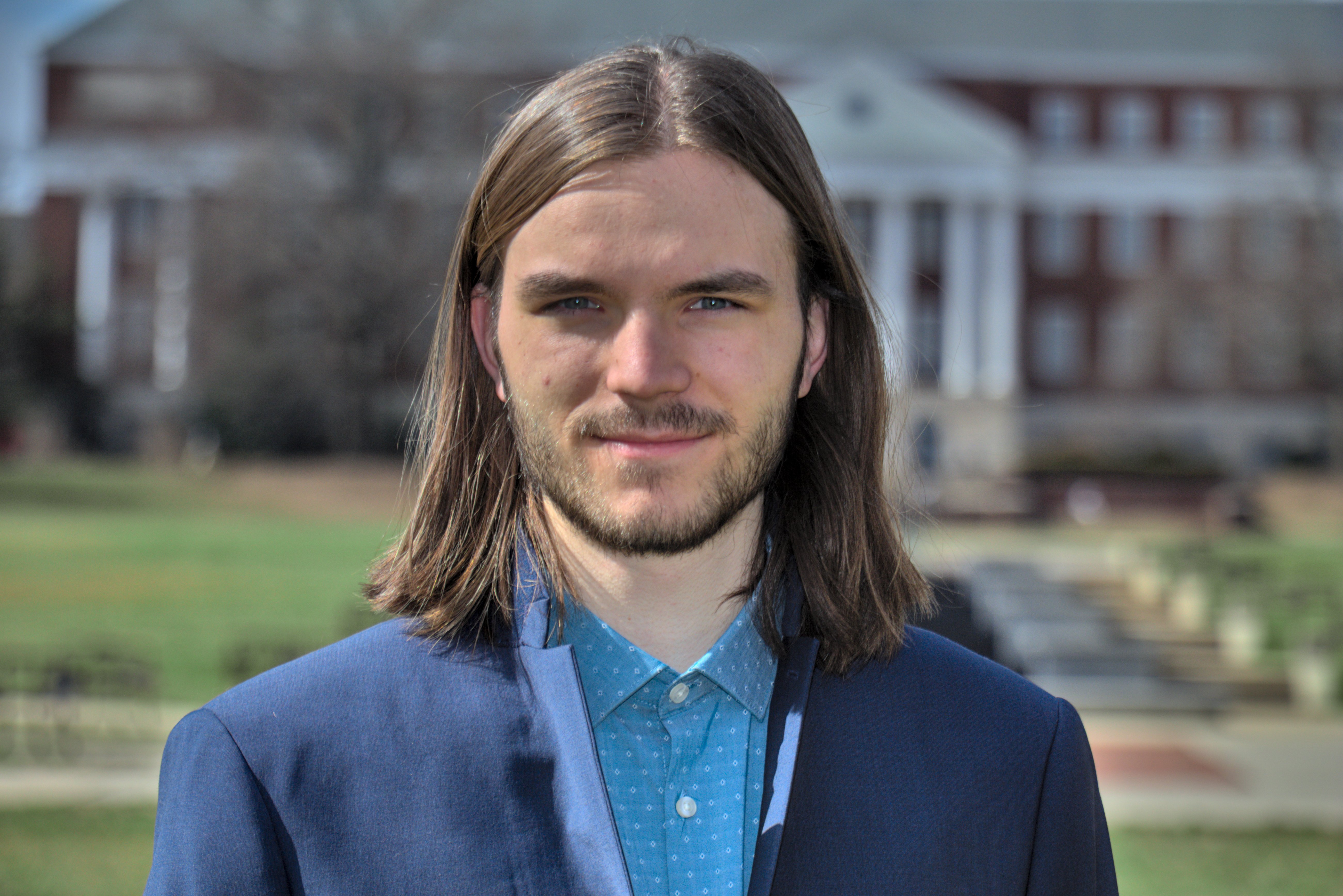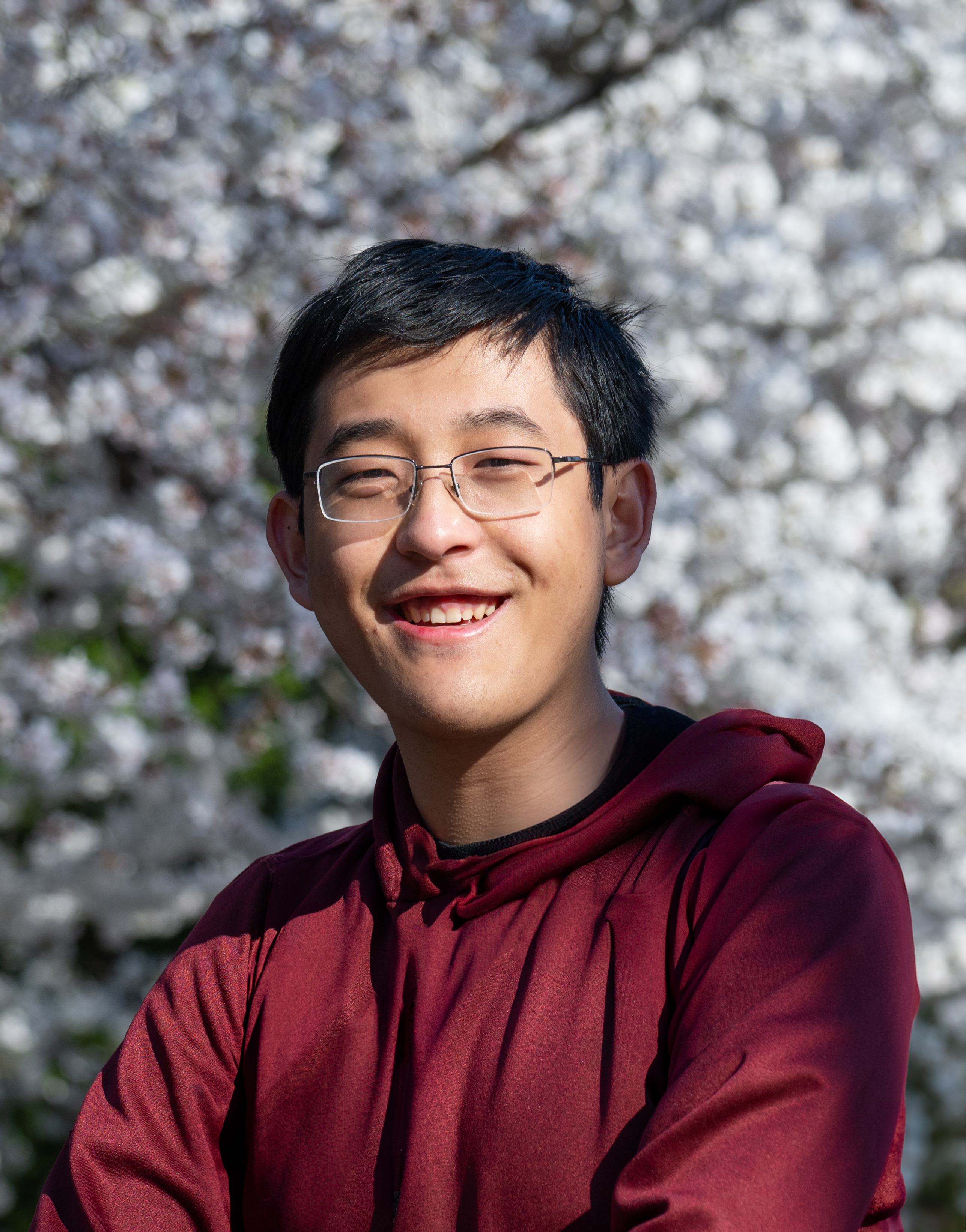Pinkowitz sought University Career Center support and landed a Navy Federal Credit Union internship.
 Why did you decide to study mathematics at UMD and what do you hope to do with your degree?
Why did you decide to study mathematics at UMD and what do you hope to do with your degree?
I’ve always been interested in the analytical and logical aspects of everything I do, and I’ve always enjoyed my math classes. With a mathematics major, I’m able to explore more math while also enhancing these analytical and logical skills to be applied in other fields, like my other major in economics. With my degree, I hope to work in economic analysis or data analysis.
How have you taken advantage of opportunities on campus to pursue your career goals?
I have attended multiple fall and spring university-wide career fairs to learn about different companies and work on my networking skills. I’ve also taken a class (EDCP108I) focused on the process of landing a job, which helped take me through the steps of setting up my LinkedIn profile through the interview process.
Earlier in my college career, I also participated in a few resume reviews, both in the class previously mentioned and at the Career Center, to refine what information should be included on my resume and how to best explain it.
What kind of career guidance and one-on-one feedback did you receive from the University Career Center @ CMNS?
At the Career Center, I met with [University Career Center @ CMNS Program Director] Becca Ryan to do a mock interview in preparation for internship interviews. During this session, Becca told me to make sure I discussed the impact of my previous work, rather than just explaining what I did. Overall, this mock interview helped me to feel more confident in my interview skills and better prepared for any questions I could be asked during an actual interview.
The application process for Navy Federal Credit Union included my initial application materials, a recruiter call and a behavioral interview with the position supervisor. During this process, I applied what I had learned to help me during my interview for the position and to answer any questions I was asked efficiently and effectively.
What are you most looking forward to during your summer internship at Navy Federal Credit Union?
I’m most looking forward to exploring new territory professionally and working with an amazing team. I’ll be working on process improvement and automation, but I don’t know exactly what project I will be working on. I’m very excited to learn a lot this summer!
What advice do you have for fellow Science Terps who are looking for internships and jobs?
Don’t get discouraged! The internship and job process can be very taxing and involve rejection, but remember that it only takes one company to say yes, so just keep trying! Also, take advantage of the fact that UMD is located in the D.C. area, which provides a lot of great opportunities to network and meet some really cool people.
Nine current students and recent alums of the University of Maryland’s College of Computer, Mathematical, and Natural Sciences (CMNS) received prestigious National Science Foundation (NSF) Graduate Research Fellowships, which recognize outstanding graduate students in science, technology, engineering, and mathematics.
Across the university, 22 current students and recent alums were among the 2024 fellowship winners announced by the NSF.
Two recently graduated from the Department of Mathematics:
- Marcus Benyamin (B.S. ’17, mathematics; B.S. ’17, chemical engineering)
- Siri Neerchal (B.S. ’21, mathematics; B.S. ’21, history)
Benyamin is a chemical engineering Ph.D. student at the University of Texas at Austin and Neerchal is a Ph.D. student in sociology and social policy at Harvard University.
NSF fellows receive three years of support, including a $37,000 annual stipend, a $16,000 cost-of-education allowance for tuition and fees, and access to opportunities for professional development.
The NSF Graduate Research Fellowship Program helps ensure the vitality of the human resource base of science and engineering in the United States and reinforces its diversity. The program recognizes and supports outstanding graduate students in NSF-supported science, technology, engineering, and mathematics disciplines who are pursuing research-based master’s and doctoral degrees at accredited U.S. institutions.
Since 1952, NSF has funded more than 60,000 Graduate Research Fellowships out of more than 500,000 applicants. At least 42 fellows have gone on to become Nobel laureates and more than 450 have become members of the National Academy of Sciences.
Three undergraduates in the University of Maryland’s College of Computer, Mathematical, and Natural Sciences (CMNS) have been awarded 2024 scholarships by the Barry Goldwater Scholarship and Excellence in Education Foundation, which encourages students to pursue advanced study and research careers in the sciences, engineering and mathematics. Over the last 15 years, UMD’s nominations yielded 49 scholarships—second in the nation only to Stanford.
Junior physics and mathematics double-degree student Yash Anand, sophomore atmospheric and oceanic science (AOSC) and physics double-degree student Malcolm Maas, and junior biological sciences and mathematics double-degree student Jerry Shen are among 438 Goldwater Scholars selected from 1,353 nominees nationally. Goldwater Scholars receive one- or two-year scholarships that cover the cost of tuition, fees, books, and room and board up to $7,500 per year.
“The Goldwater Scholarships awarded to Yash Anand, Malcolm Maas and Jerry Shen are a result of their years of diligent effort, commitment, and seizing the research and extracurricular opportunities available at Maryland,” CMNS Dean Amitabh Varshney said. “These experiences have distinguished them among the nation's top STEM candidates.”
The Goldwater Foundation has honored 82 UMD winners and five honorable mentions since the program’s first award was given in 1989.
“Our 2024 Goldwater winners are reflective of the tremendous young research talent that is incubating at UMD,” said CMNS Associate Dean of Undergraduate Education Robert Infantino, who has led UMD’s Goldwater Scholarship nominating process since 2001. “They continue a legacy of winners that have gone on to leading graduate programs and are pursuing careers that greatly impact science and society.”
Yash Anand

Anand, a student in the Gemstone program in the Honors College, has been investigating quantum materials in UMD Physics Professor Johnpierre Paglione’s lab since 2021.
He has grown, characterized and fine-tuned several new quantum materials that have unusual magnetic and physical properties. As part of this work, he spent time at TRIUMF, Canada’s particle accelerator facility. To fill in the long periods it takes to grow these materials, Anand took on another project studying the properties of sperrylite, the natural source of platinum. His work in Paglione’s lab resulted in two co-authored papers submitted for publication and a presentation at the 2024 American Physical Society March Meeting.
“Yash’s efforts in quantum materials synthesis and characterization have helped us advance several extremely promising avenues, including a new project on high-entropy alloys that is forging a path to a new research avenue for our team that will likely form the basis for future grant proposals,” said Paglione, who also directs the Maryland Quantum Materials Center. “His contributions have shown strong potential and have supported several facets of our research program, and I am excited to see where this work takes him next.”
Anand joined UMD Physics Associate Professor Zohreh Davoudi’s group in April 2023 to study the speed limit at which information propagates in a quantum system. More recently, he joined UMD Physics Professor Jay Sau’s group to analyze a proposed theory on non-linear quantum mechanics using phonons in crystal lattices.
A Regeneron Science Talent Search Scholar, Anand received the Angelo Bardasis Scholarship from the Department of Physics. He serves as treasurer of UMD’s Society of Physics Students chapter.
After graduation, Anand plans to pursue a Ph.D. in condensed matter physics.
“I am particularly interested in magnetic structures, such as skyrmionic bubbles, due to their potential to introduce innovative approaches for data storage and transfer, thereby advancing current electronic systems,” he said. “I also want to study the evolving field of superconductivity and the use of superconductors to reduce energy dissipation and cost of medical equipment.”
Malcolm Maas

In high school, Maas helped build the first global tornado climatology database. He gathered and processed historical data for over 100,000 tornadoes that occurred around the world. The project’s website raked in 160,000 page views during its first year.
When Maas arrived at UMD, he joined a group of AOSC students installing and managing a micronet—a small-scale network of weather sensors—across the university’s campus. Five weather stations now provide minute-by-minute updates on the temperature, wind speed, pressure, dew point and rain rate on campus. Maas helped create the data collection system and user-friendly graphs to visualize the data, which are displayed on the UMD Weather website.
When the university and the Maryland Department of Emergency Management installed their first weather tower as part of the Maryland Mesonet in October 2023, they asked Maas to quickly adapt his micronet visualization tools to work with the mesonet data. The eight towers operational now around the state—with more than 70 planned in total—help to advance localized weather prediction and ensure the safety of Maryland's residents and visitors.
Since December 2022, Maas has been working with AOSC Assistant Professor Jonathan Poterjoy on fundamental challenges associated with environmental prediction and validation of atmospheric modeling systems. Specifically, he is quantifying the degree to which commonly used data assimilation methods shift models away from physically plausible solutions due to commonly adopted but incorrect assumptions.
“I have been very impressed with Malcolm’s level of understanding of the abstract concepts we are working with and his ability to take the lead on a project,” Poterjoy said. “Malcolm always comes to me with excellent questions and directions for our research and he has demonstrated an impressive depth of knowledge for such a young scientist.”
Last summer, Maas participated in the undergraduate summer intern program at the Lamont-Doherty Earth Observatory and worked on a project with Kostas Tsigaridis, a research scientist at Columbia University and the NASA Goddard Institute for Space Studies. Maas used an extremely large dataset of Earth system model simulations to explore the effects of volcanoes on climate and atmospheric sulfur. Using machine learning, he developed a tool to estimate where unidentified historical eruptions happened based on ice core data. He has two papers in preparation on this work, which has been presented at three conferences.
For his Gemstone honors research project, Maas and 11 teammates have been working with UMD Mechanical Engineering Professor Johan Larsson to optimize the shape of marine propellers.
Outside of class, Maas plays the pipe organ, advocates for infrastructure with the Student Government Association, serves as webmaster for UMD Weather and is a member of the Ballooning Club. He received a National Merit Scholarship, a President’s Scholarship and the Angelo Bardasis Scholarship from the Department of Physics.
After graduation, Maas plans to pursue a Ph.D. in atmospheric science.
“I’m excited about applying advanced data science methods to problems in the physics of the
atmosphere,” he said. “Modern atmospheric sensing and simulation capabilities continue to increase in fidelity and the power of implementing sophisticated big-data processing techniques grows accordingly.”
Jerry Shen

Shen began his research career in high school with John Strang, director of the Gender and Autism Program at Children’s National Hospital. He developed a psychometric measure to quantify gender identity that is available in the public domain for use by clinical providers and researchers. Shen co-authored a paper on the work in The American Psychologist.
Since 2021, he has been working in Maureen Goodenow’s lab at the National Institutes of Health (NIH) using bioinformatics to identify genetic and immunogenic factors that contribute to HIV viral suppression. Shen submitted for publication a co-authored paper on this work, which was presented at the 2024 Congress on Retroviruses and Opportunistic Infections, one of the premiere international HIV conferences. He is also preparing a paper on his work exploring how THC and tobacco use can modulate gene expression in people with HIV.
“Jerry is thriving as a developing researcher in a real-world environment,” said Goodenow, chief of the Molecular Host and HIV Interactions Section in the NIH’s National Institute of Allergy and Infectious Diseases. “He is intellectually curious and highly motivated to understand all aspects of the projects and to integrate across-disciplines approaches.”
Since 2022, Shen has been working with UMD Physics Professor Wolfgang Losert and UMD Chemistry and Biochemistry Professor John Fourkas to explore the role of surface characteristics in modulating the assembly of actin filaments, which are proteins that keep cells connected. Using advanced computer vision techniques, Shen showed that cells can mechanically sense their environment through subcellular actin dynamics localized to the surface of nanotextured ridges. This work, which he presented at the 2024 American Physical Society March Meeting, is motivated by a desire to better understand cancer cell dynamics—a crucial element for developing new therapeutic strategies.
Shen was named a Regeneron Science Talent Search Scholar and received a Banneker/Key Scholarship and M3 Math Modeling Challenge Silver Technical Prize. At UMD, he volunteers as an EMT and hospital patient care advocate. He is also the founder and president of UMD’s American Physician Scientist Association, treasurer of the UMD Science Olympiad and a member of a group called Science Competitions Advocating for Learning Equity.
After graduation, Shen plans to pursue an M.D./Ph.D. in molecular medicine with a focus on cancer therapeutics.
“Designing cancer therapeutics requires careful consideration of biochemical, immunological and patient care-related factors,” Shen said. “My Ph.D. training will provide me with the skills to evaluate the efficacy of treatments and the M.D. will equip me with the skills to apply these treatments effectively in a clinical setting, taking into account factors such as treatment timing, patient responses and drug side effects.”
-

Meet Brin Mathematics Research Center Coordinator Natalie Kinnear
She grew up in a Terp family and found her way from Los Angeles to College Park in 2018. … Read More -

Keeping an ‘Open Mind’ in Math
As director of UMD’s applied mathematics & statistics, and scientific computation graduate program, Radu Balan oversees many branches of math—and… Read More -

From Math Olympiad to Diplomacy
Math Professor Reimagining Learning: Meet Qendrim Gashi Let’s start by talking about your role in the field of mathematics. Can… Read More
- 1
- 2
- 3
- 4
College Park, MD 20742-4015
P: 301.405.5047 | F: 301.314.0827


